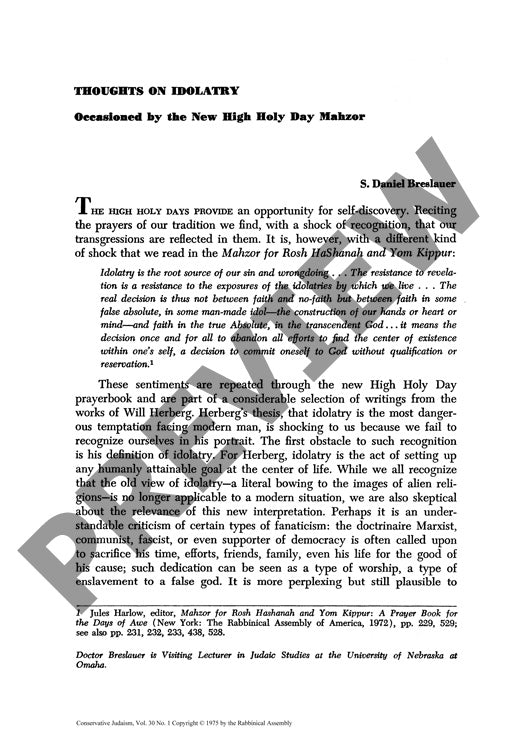Thoughts on Idolatry Occasioned by the N
Couldn't load pickup availability
When modern Jews pray from the new High Holy Day Mahzor, they encounter Will Herberg's stark warning: the greatest spiritual threat we face is not atheism, but idolatry. Herberg defines this modern idolatry as elevating any humanly attainable goal to life's central value, arguing that individuals must ultimately choose between authentic faith in God or devotion to false absolutes. Through textual analysis of theological sources and examination of contemporary religious thought, this investigation evaluates Herberg's controversial thesis, which has drawn significant criticism from theologians Martin Buber and Emil Fackenheim for its departure from traditional rabbinic interpretations. While these critics contend Herberg's definition is overly broad, his position finds support from Paul Tillich, H. Richard Niebuhr, and Abraham Heschel, who help distinguish between faith in finite objects versus divine faith based on motivation and goal achievability. Herberg's understanding of idolatry proves both theologically defensible and liturgically valuable for High Holy Day worship, as it focuses worshippers on examining their deepest motivations while preventing religious observance from devolving into mere self-congratulatory humanism, thereby preserving the authentic Jewish prayer experience.

More Information
-
Physical Description
-
Publication Information
Published 1975
ISBN
-
Publication Credits
S Breslauer

